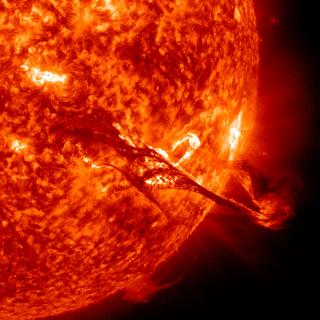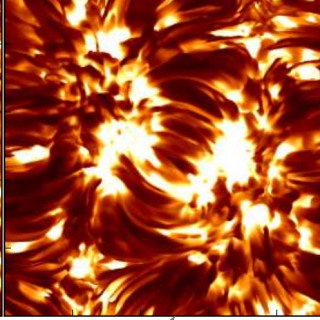Bibcode
Asensio-Ramos, A.; Ruiz-Cobo, B.
Bibliographical reference
Astronomy and Astrophysics, Volume 549, id.L4, 4 pp.
Advertised on:
1
2013
Journal
Citations
67
Refereed citations
61
Description
Aims: We study the presence of reversed polarity magnetic flux in
sunspot penumbra. Methods: We applied a new regularized method to
deconvolve spectropolarimetric data observed with the spectropolarimeter
SP onboard Hinode. The new regularization is based on a principal
component decomposition of the Stokes profiles. The resulting Stokes
profiles were inverted to infer the magnetic field vector using SIR. Results: We find, for the first time, reversed polarity fields at the
border of many bright penumbral filaments in the whole penumbra.
Related projects

Solar and Stellar Magnetism
Magnetic fields are at the base of star formation and stellar structure and evolution. When stars are born, magnetic fields brake the rotation during the collapse of the mollecular cloud. In the end of the life of a star, magnetic fields can play a key role in the form of the strong winds that lead to the last stages of stellar evolution. During
Carlos Cristo
Quintero Noda

Magnetism, Polarization and Radiative Transfer in Astrophysics
Magnetic fields pervade all astrophysical plasmas and govern most of the variability in the Universe at intermediate time scales. They are present in stars across the whole Hertzsprung-Russell diagram, in galaxies, and even perhaps in the intergalactic medium. Polarized light provides the most reliable source of information at our disposal for the
Ernest
Alsina Ballester